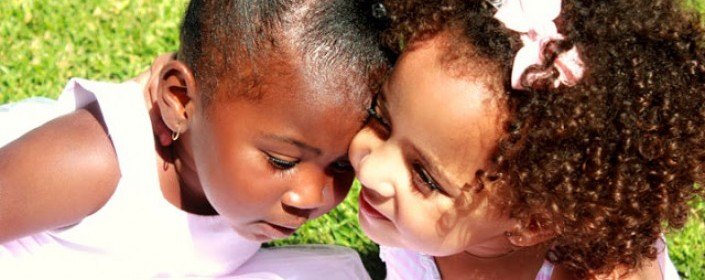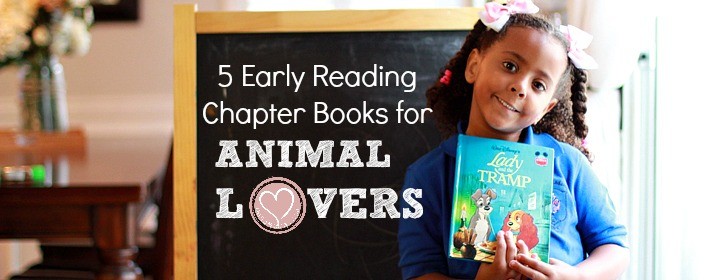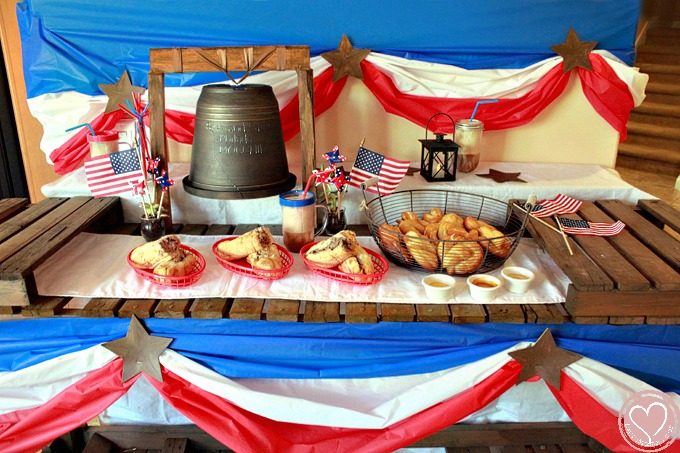In college I took a year-long Multicultural Mediation course that met on Saturdays and required an overnight camping trip in order to earn a passing grade. Going to school every Saturday is a testament to any college student’s dedication, but I would do it again in a heartbeat.
Among the most life altering realizations I gained from that class was that I would never subscribe to the racial ideology of color blindness. The idea of being “color blind” is based on the premise that all people should be judged equally, regardless of color of skin. Not such a bad idea, theoretically. Akin to MLK’s message to judge people on the content of their character rather than the color of their skin, I don’t think he ever meant to make a person’s skin color obsolete.
Should we raise color blind kids?
To be blind is to physically not see. To be color blind is to see the world void of color, or lesser hues of them. So if you have healthy eyesight yet still refuse to see the color in these beautiful little girls, it would be difficult for me to believe you. I’d maybe even call you a bit ignorant. Seems harsh? Perhaps. But I’d rather be ignorant than racist, like this article, Colorblind Ideology is a Form of Racism by Monica Williams, Ph.D., would label one as.
To a certain extent, I agree with the above article. Actually, I completely agree. The idea of ending discrimination by removing the discourse on skin color hinders our end goal by creating a shield of ethical superiority. And, I don’t believe it. I just can’t believe that anyone is walking this earth without viewing and assessing and generalizing the world around them. I certainly don’t believe that because you refuse to acknowledge skin color, you are ethically void of discrimination. It’s when language, thought and action turns hateful, ignorant and with nasty airs of superiority that generalizations turn into discrimination and racism. Or even worse, like the aftermath we are watching unfold in the trial of a crazy man who killed an unarmed kid because he was walking down the wrong street with a hoodie over his head {because, Trayvon wasn’t murdered because he was black, right?} the practical implementation of color blindness is an utter farce. For those of us who can’t choose when skin color is relevant to the discourse of our lives, color blindness is worse than a joke — its dangerous.
As it pertains to raising color blind kids, I wouldn’t dare consider this approach as a viable lesson plan. And especially as a parent to children of mixed backgrounds, I would never subject them to an ideology that strips them of their skin color, their culture, their heritage. Why would anyone want to remove the beauty of this world’s differences from the conversation, anyway? Color blindness does not allow us to embrace the differences among us; nor then grant us the opportunity to learn how much of the same we really are. If you are looking to raise globally astute citizens of the world, taking the color blind approach is not for you.
Personally, I find so much beauty in the variance of skin colors, and the myriad of cultures associated with them. When I look at photos of my family, I am proud of the way we look. I think we’re beautiful. So, although it took me some time to become comfortable with her questions and how I would approach them, when my two and a half year old, inquisitive little girl asked me if Daddy is black, if Mommy is brown {and what that made her}, I was able to talk to her about the variances of our skin colors and highlight our beauties {in an age appropriate manner}. If I subscribed to color blindness, what would I have told her? That we’re all the same, when she is obviously picking up our differences? Would I shun her questions in the name of “color blindness”, even though I know the world can be so damn ugly? No. My answer is no; if my child wants to talk about skin color, then I’m going to talk about skin color. I want Alina to be aware of the differences within her family, and love them. Be proud. And associate her brown skin with beauty, not something to be blind to. Heaven knows our society doesn’t always do the best job at that.
As opposed to approaching race and skin color from a color blind perspective, I encourage you to consider a more inclusive ideology. According to Monica Williams, Ph.D., from the article mentioned above, the better alternative is Multiculturalism:
“The alternative to colorblindness is multiculturalism, an ideology that acknowledges, highlights, and celebrates ethnoracial differences. It recognizes that each tradition has something valuable to offer. It is not afraid to see how others have suffered as a result of racial conflict or differences.”
I wholeheartedly agree. In a world that holds onto so much ignorance, opening the discourse on skin color, differences in traditions and being open to listening to another’s suffrage, is vital to the improvement of our world. And I HAVE to believe our world is improving; maybe even naively so. I owe it to my kids to see the beauty in our society and the people within it. Its such a thin line to walk. I don’t want Alina to grow up with constant fear that she will be discriminated against, but it goes without saying that the thought of Sebastian being physically harmed while walking down the street makes me fall into a near panic.
So, how do you incorporate multiculturalism into your daily life? Try to live with the idea and parent your children with multiculturalism as part of your value system. Talk to you kids about skin color, different cultures, or at the very least, don’t shy away from the topics if they ask you. Be curious and ask questions about cultures and traditions unfamiliar to your own, without worry of seeming “ignorant”. Better to ask from a place of sincere curiosity, than pretend like you know it all and actually look ignorant. And quite simply, engage with people that don’t look like you. Its really that simple. Make friends. Associate. Identify with. Realize that, with everything that makes us different, we are all very much the same.




21 Comments
Chantilly Patiño (@BiculturalMom)
August 4, 2012 at 10:33 pmAbsolutely beautiful post Vanessa! Thank you, thank you for writing this! 🙂 I definitely have to agree and couldn’t have said it better. ♥
Anonymous
August 6, 2012 at 6:26 amSuch an insightful post! I agree completely with all that you have said. Race and racism is still very much alive and to approach the world in a “color blind” way is a very privileged way of thinking and devalues and even denies many of the difficulties POC face everyday because of their skin color. POC are reminded that they are “other” almost everyday of their lives and to pretend that this doesn’t happen simply for the sake of being ‘colorblind’ is a big disservice to the struggles POC have faced throughout human history and ARE STILL FACING – 19 year old college student (poli sci major) who stumbled across your blog and fell in love with it. Beautiful family too!
De Su Mama
August 7, 2012 at 3:25 pmHey Anon! I was a 19 year old Poli Sci major at one time, too! Welcome, and I encourage you to keep doing your thing. AND don’t stop at your BA.. you gotta keep it movin’ up! Thanks for coming by!
From Marriage To Motherhood
August 8, 2012 at 9:11 pmLook at my sweet Alina!!! Love those curls, love her smile, and I love how her heart shines through in her photos!!!
Carolina
August 8, 2012 at 11:23 pmI’m a white girl who grew up in a predominantly white town. In my elementary school class, over 90% of us were white. But every difference was celebrated. The ones on the outside (red hair, being tall, having freckles, whatever), and ones you couldn’t see (cultural and spiritual differences, for example).
As a class we celebrated Christmas… but we also learned about and celebrated the ideas behind Hanukkah… even if they weren’t our own. Because everyone’s experiences have value and should be celebrated!
Little Gumnut
August 11, 2012 at 6:19 amHey there, I’m just popping over from Write On Edge. I’m white European but I grew up in Pakistan and when I returned to the UK at age 18, I felt Pakistani and I identified more with Pakistanis than I did with white Brits. As an adult, I’ve married a Frenchman and we have lived in NZ (where there is a high Maori and Pacific Islander population), Fiji (where there are two races – Indian and Indiginous Fijian) and now in Sydney where there are a huge range of immigrants, nationalities and races. I love the fact that our kids are growing up with an awareness of other cultures and races. When we were in Fiji, they remarked on and observed differences between Fijian and Indian friends quite unprompted. In the UK it is incredibly unPC to mention race at all but I was so refreshed to find on our travels, other cultures don’t do this, they are incredibly proud of their colour and revel in it.
Loved your thought provoking post.
integratedmemoirs
August 11, 2012 at 2:48 pmI totally agree with you, and thank you for writing such a beautiful and thoughtful article.
Holly
August 20, 2012 at 7:00 amYou can’t make a rainbow without lots of colors.
Ellie
August 24, 2012 at 2:22 amWell said! I couldn’t agree more! Research has shown that even young children do notice differences – it is simply human nature. It is what we do with those differences that matters. Do we use them to judge people and put them in boxes or create limitations about who they can be? Or do we celebrate and appreciate them? Such a great post!
DJrelAt7
August 31, 2012 at 7:02 pmMulticulturalism, love it! I am Puerto Rican and my family is very mixed. I have dark skinned people in my family and white people in my family, we are all different shades… My children will be even more mixed and while you’re right, the idea of color blinded-ness makes sense it doesn’t work because it is ignoring the great things that makes us different! Great Post.. Stopping by from Write Out Loud … a little late but better late than never!
DJrelAt7
August 31, 2012 at 7:07 pmI meant Write On Edge, not Write Out Loud 🙂
Lisa Cash Hanson
November 19, 2012 at 3:26 pmSo happy to see you on Blogher and this post is wonderful. As parents we each decide what is best for our children and whatever their skin color it’s so important that they know how valuable, special and unique they really are. Obviously you are teaching your children exactly that- and they are beautiful!
Lessons To Learn When Parenting A Black Boy, From a Brown Mom - De Su Mama
July 16, 2013 at 2:09 pm[…] I wrote about my feelings on raising kids to be color blind (the post that was featured on BlogHer: Raising Your Kids Color Blind And Why I Wouldn’t Dare). To sum it up, if you think I should raise my kids colorblind, you’re out of your mind. […]
Leanna @ Alldonemonkey
July 16, 2013 at 6:27 pmCouldn’t agree more! Brilliant post.
Study finds: White children are far more negative about racial interactions than black children - Bicultural Mom™
October 7, 2013 at 1:58 am[…] so uncomfortable and that’s in large part due to our inexperience in the conversation. Colorblindness is not the answer…it’s a huge part of the […]
Study finds: White children more negative about race - Bicultural Mom™
October 7, 2013 at 2:00 am[…] Colorblindness is not the answer…it’s a huge part of the problem. […]
Colleen G
October 7, 2013 at 6:13 pmFirst I will admit to calling myself colorblind but in the limited sense that skin color/tone should not be used as something that you judge another person by.
I do have one question that is raised inside me. Why is it ok to be proud of your heritage if you are non Caucasian but if you try to have any “pride” in whiteness you are immediately lumped racist? Can’t we like ourselves too? Please understand I am not getting that vibe from this article but the question is there. What do I do with it? How do I support pride in all colors, ethnicities including Caucasian? How can I be equal. This may sound a little dense but I do live in an un-diverse area and it’s easy to ignore the hard stuff or pretend that people are nice everywhere to everyone.
Discussing MLK with Young Multiracial & Biracial Children - De Su Mama
January 20, 2014 at 11:34 am[…] these MLK Quotes to set the foundation of inspiration; to look within themselves for self worth. We see color and celebrate multiculturalism. MLK was about elevating the black self esteem, as much as he was […]
3 lessons learned from teasing- Multiracial Children
November 24, 2014 at 9:29 am[…] something and kids like to pick on them. I practice a positive parenting philosophy with a focus on multiculturalism, so when Alina sees differences, she reacts with curiosity – not shaming. I choose to see […]
Q is for Cuban: My 3 Year Old's Biracial Identity - De Su Mama
January 1, 2015 at 8:55 pm[…] person advised me to hide our differences away for the sake of acclimation. Never. When I wrote Why I Wouldn’t Dare Raise My Kids To Be Color Blind, I meant it. In our little world, there is no hiding our differences anyway. We are very brown and […]
I’m White, My Daughter is Latina, and I Buy Black Dolls | Bicultural Familia
October 22, 2016 at 10:07 am[…] a great article that explains why colorblind parenting is not only less than ideal, but […]